Implant retained dentures are a revolutionary solution for individuals facing tooth loss. They offer a blend of functionality, stability, and aesthetics that surpasses the capabilities of traditional dentures. In this article, we will explore the nuances of implant retained dentures, their benefits, comparisons with traditional dentures, financial considerations, procedural details, potential risks, and ultimately how they can transform lives.
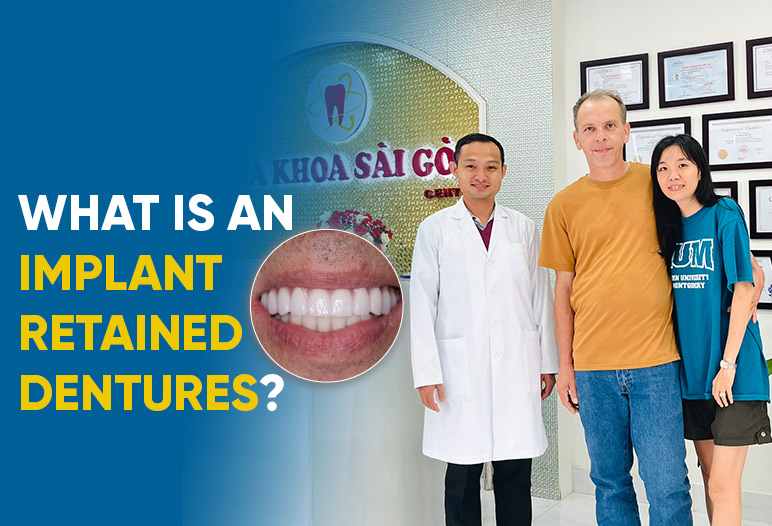
Understanding implant retained dentures
Implant retained dentures represent a significant advancement in restorative dentistry. Emphasizing a patient-centric approach, these dental solutions not only restore functionality but also enhance the overall quality of life for people who have lost most or all of their teeth. The integration of dental implants into denture design allows for a level of comfort and stability that traditional dentures simply cannot provide.
Definition and overview
To fully grasp what implant retained dentures entail, it is essential to understand the basic components involved. At their core, these dentures consist of titanium implants placed directly into the jawbone. These implants act as artificial roots, offering a sturdy base for removable or fixed prosthetic dentures. This design contrasts sharply with conventional dentures, which rely primarily on suction and adhesives to stay in place.
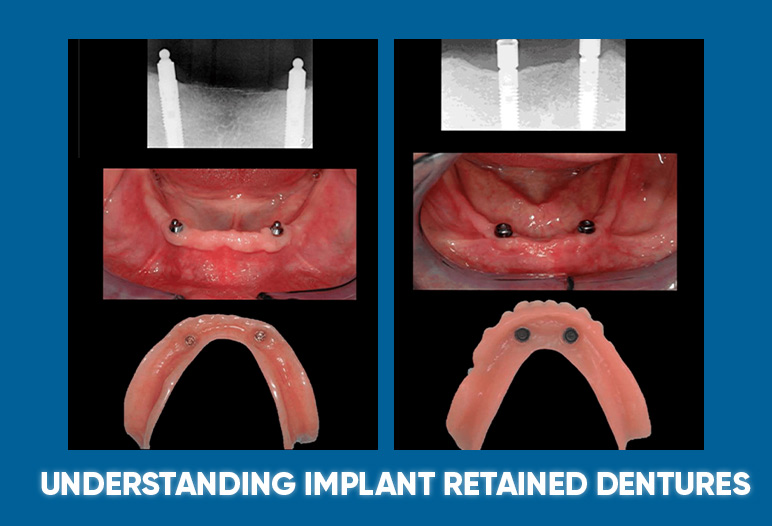
The primary motivation behind developing dental implant retained dentures stems from the need for a more reliable and comfortable alternative to traditional methods. When teeth are lost, the underlying bone begins to deteriorate due to lack of stimulation. It help address this issue by providing that much-needed stimulation, ensuring long-term oral health and preserving facial structure.
For many patients, transitioning to implant retained dentures means liberating themselves from the frustration associated with traditional dentures. Issues such as slippage, sore gums, and limited dietary options can diminish one’s quality of life. With implant retained dentures, individuals can enjoy a more secure fit, enabling them to eat a diverse range of foods and speak with clarity. The psychological aspect of regaining one’s confidence and smile should not be underestimated; it plays a pivotal role in emotional well-being.
Types of implant retained dentures
Different patients have varied needs based on their individual circumstances, preferences, and oral health. Consequently, multiple types of implant retained dentures exist to accommodate these diverse requirements.
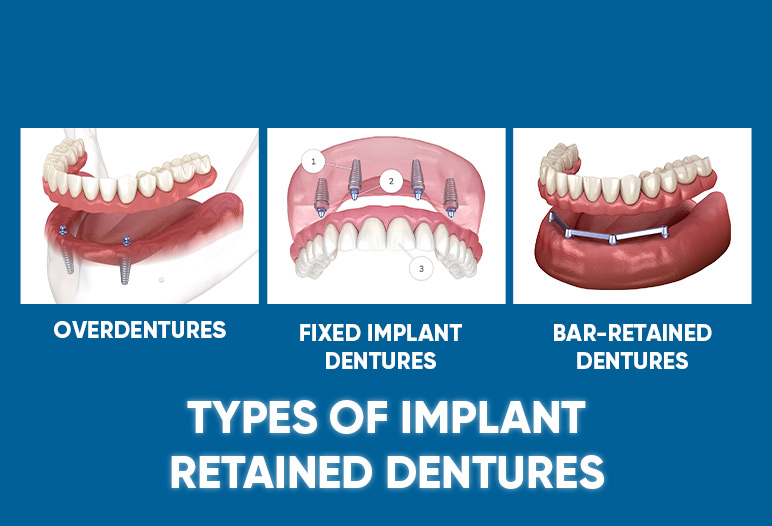
Overdentures are perhaps the most popular type. This design features several dental implants embedded into the jawbone, onto which a specially designed denture snaps securely. This offering retains the removable feature that many users appreciate while enhancing both comfort and security compared to classic dentures.
Fixed implant dentures or fixed bridges take the concept further by being permanently attached to the implants. Ideal for individuals who have lost all teeth in one arch, these dentures mirror the appearance and function of natural teeth, making them an ideal choice for those seeking maximum stability.
Another variation is bar-retained dentures. A metal bar secures multiple implants beneath the gumline, allowing the denture to snap onto this bar. This design is particularly beneficial for lower arches, where stability is often compromised. Each type serves specific dental needs, which emphasizes the importance of consulting a qualified dentist to choose the best option tailored to individual circumstances.
Benefits of dental implant retained dentures
The advantages of choosing dental implant retained dentures over traditional solutions are numerous and transformative. These benefits extend beyond physical comfort and functionality, impacting emotional health and self-esteem significantly.
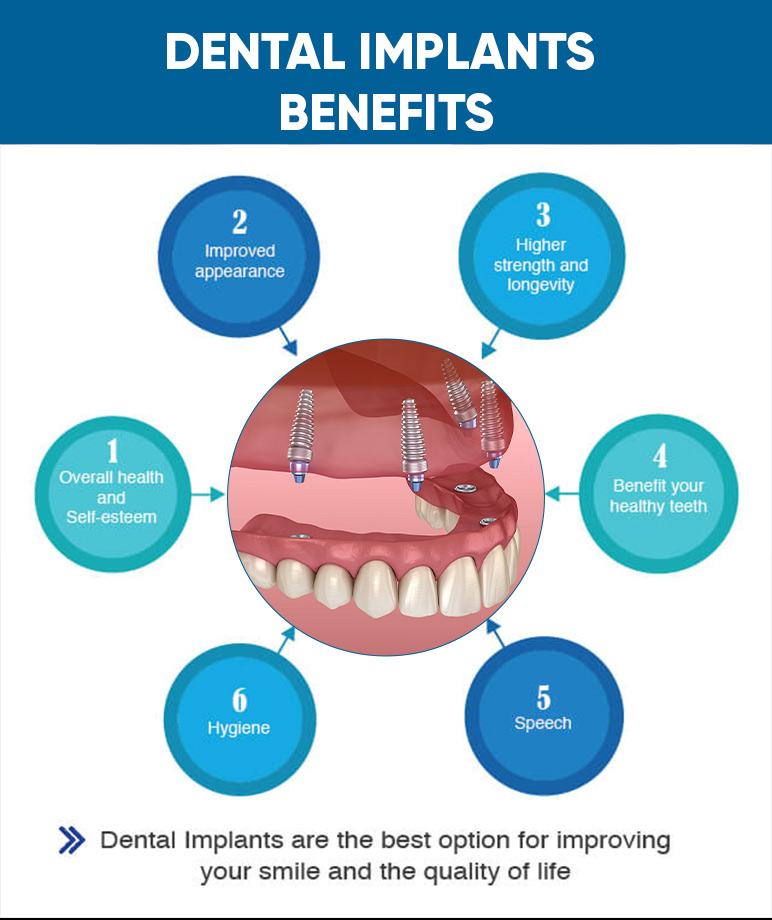
Enhanced stability and security stand out as the most immediate advantage. Unlike traditional options that can shift during eating or speaking, implant retained dentures boast a secure fit anchored to the jawbone. This reliability empowers wearers to engage in social situations without the worry of embarrassing slips.
Improved chewing capability emerges as another critical benefit. Many individuals with traditional dentures find it challenging to enjoy various foods, leading to dietary restrictions that impact nutritional intake. With the added strength afforded by dental implants, patients can savor a broader spectrum of cuisine, thus improving overall health and vitality.
Aesthetic enhancements play a vital role in the appeal of implant retained dentures as well. Designed to mimic natural teeth closely, they provide a seamless visual integration that elevates both confidence and self-image. Patients experience a renewed sense of self-worth when they can smile freely without concern about the appearance of their dentures.
Lastly, the preservation of jawbone density deserves attention. Dental implants stimulate bone growth, addressing deterioration typically seen with tooth loss. By maintaining jaw structure, implant retained dentures help prevent the sunken appearance often associated with traditional dentures, ensuring patients retain their youthful look.
Comparing traditional dentures and implant retained dentures
When evaluating whether to pursue traditional dentures or implant retained options, understanding the differences between these two approaches is crucial. Each has merits, but the distinctions can significantly affect a patient’s lifestyle and comfort.
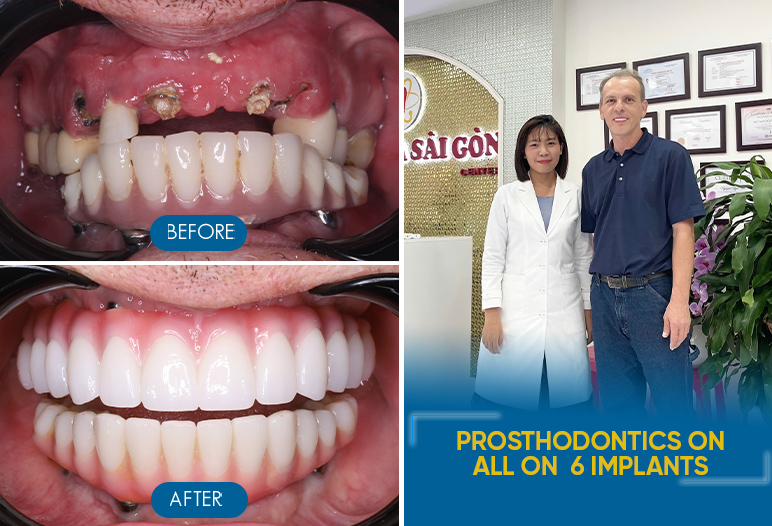
Stability and comfort
One of the most apparent differences between traditional dentures and implant retained dentures lies in stability and comfort. Traditional dentures, while functional, depend heavily on suction and adhesive for retention. This reliance often leads to discomfort and insecurity, particularly when it comes to eating or speaking. Wearers frequently find themselves battling the fear of their dentures slipping at inopportune moments.
In stark contrast, implant retained dentures are anchored securely in place. The implants provide a stable foundation that eliminates the need for messy adhesives. Patients report feeling liberated from the worries associated with traditional options. They can confidently consume a wide variety of foods and fully engage in conversations without the nagging concern of embarrassment due to denture slippage.
This newfound freedom translates to increased comfort levels. Patients no longer have to contend with painful sores or discomfort resulting from ill-fitting traditional dentures. As a result, they can enjoy their daily lives more fully and with a renewed sense of purpose.
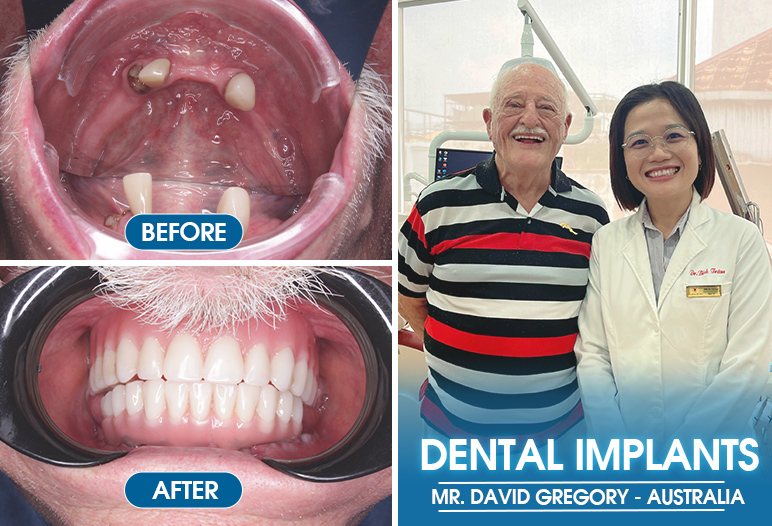
Aesthetic appeal
While both traditional and implant retained dentures aim to improve the aesthetic appeal of a smile, the results can differ markedly. Traditional dentures can sometimes appear bulky or unnatural, leading to concerns about their authenticity. Furthermore, as the underlying bone shrinks from tooth loss, traditional dentures can accentuate a sunken appearance, which detracts from the overall cosmetic outcome.
On the other hand, implant retained dentures are designed to closely resemble natural teeth. Their secure positioning helps maintain facial structure, preventing that undesirable sunken look. The aesthetic positioning of implants makes it possible to achieve a natural contour that enhances facial symmetry. This attention to detail ensures that patients regain not just function, but also the beauty of a genuine smile.
Additionally, implant retained dentures can be customized to match the color and shape of existing teeth. This personalization ensures that the final product meets the patient’s aesthetic goals while achieving a harmonious balance with the rest of their dental profile.
Maintenance and care requirements
It is essential to consider the care and maintenance required for each type of denture. Traditional dentures necessitate daily removal and cleaning to prevent plaque buildup and bacterial growth. While this routine may seem straightforward, it can become cumbersome for some patients.
In contrast, the maintenance of implant retained dentures is somewhat different. Although many implant retained dentures are designed to be removable for cleaning, they can also be easier to maintain overall. Maintaining good oral hygiene around the implants is crucial to avoid complications such as peri-implantitis. This condition refers to inflammation around the implant area, which can lead to implant failure if left unaddressed.
Patients with implant retained dentures must commit to a strict oral hygiene regimen, including regular brushing and flossing. Additionally, routine dental checkups are vital for monitoring the health of both the implants and surrounding oral tissues. This commitment to upkeep ensures longevity and optimal performance, ultimately contributing to the overall satisfaction of the patient.
Financial considerations
The financial implications of choosing between traditional dentures and implant retained dentures cost can be significant. Patients must carefully weigh initial costs against long-term investments to determine the best option for their unique circumstances. While traditional dentures generally have a lower upfront cost, implant retained dentures price involves higher initial expenses but can lead to significant savings over time due to their durability and reduced need for frequent replacements.
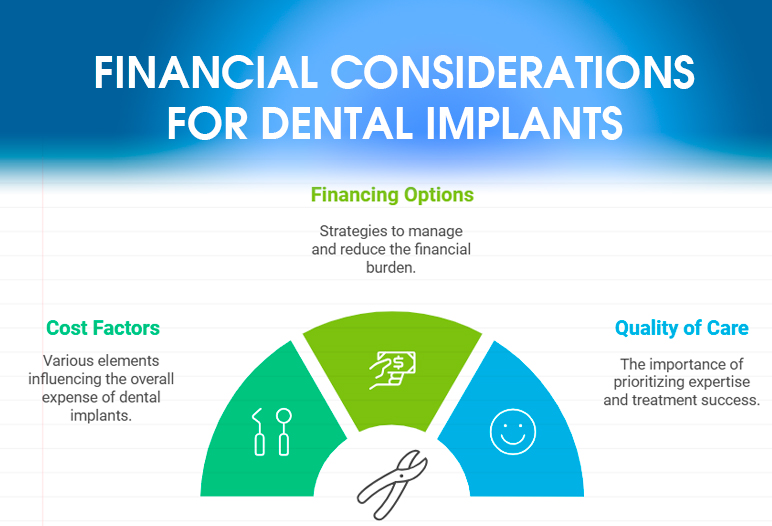
Initial costs: Traditional vs. Implant retained
One of the first factors patients encounter is the cost associated with both options. Traditional dentures tend to carry a lower initial price tag, making them attractive to individuals seeking immediate solutions. However, it is crucial to recognize that this lower upfront cost may mask additional expenses incurred over time.
In contrast, implant retained dentures generally require a higher initial investment due to the surgical placement of implants and the associated procedures. While this upfront expenditure may appear daunting, it is essential to consider the comprehensive value offered by implant retained solutions.
Long-term financial implications
Despite the higher initial costs, implant retained dentures frequently prove to be a wise long-term investment. The durability and resilience of dental implants minimize the likelihood of repairs or replacements, translating to savings over time. Individuals opting for traditional dentures may face recurring costs every few years, as these dentures may need to be replaced or adjusted due to wear and tear.
Furthermore, the preservation of jawbone density through dental implants helps mitigate future dental issues. Avoiding complications related to bone loss can save patients from potentially costly procedures down the line, including extensive bone grafting. By investing in implant retained dentures, patients gain peace of mind knowing they are prioritizing both their dental health and financial well-being.
Insurance Coverage and Payment Plans
Navigating insurance coverage for dentures can be complex. Policies vary widely, with some plans covering a portion of the costs associated with traditional dentures while excluding implant retained dentures altogether. Before proceeding with treatment, it is advisable for patients to consult with their insurance providers to clarify coverage options.
Financial arrangements can significantly ease the burden of costs. Many dental practices recognize the need for flexibility and offer payment plans tailored to individual budgets. These plans empower patients to receive the dental care they need without compromising their financial stability.
Moreover, patients should inquire about potential financing options that allow them to spread payments over time. This flexibility can make implant retained dentures a more accessible solution for many individuals seeking improved dental health and quality of life.
Procedure and treatment time for dental implant retained dentures
Understanding the procedural aspects of obtaining implant retained dentures is crucial for prospective patients. The process involves various stages, each requiring careful planning and execution to ensure successful outcomes.
Surgical process for implant retained dentures
The journey towards achieving implant retained dentures begins with a thorough consultation with a qualified dentist or oral surgeon. This initial appointment enables the practitioner to evaluate the patient’s oral health and identify suitable candidates for implant placement. Various factors, such as bone density, gum health, and overall medical history, play a crucial role in determining eligibility.
Once deemed a candidate for implants, the next step involves surgical placement. Dental implants are strategically positioned within the jawbone during this procedure. Over the course of several months, the implants integrate seamlessly into the bone through a process known as osseointegration. This biological interaction ensures a strong foundation for the eventual attachment of dentures.
Following the healing period, additional appointments may be necessary to create custom dentures tailored to the individual’s specifications. This meticulous approach guarantees that the final product aligns perfectly with the patient’s unique mouth anatomy.
Recovery time and follow-up care
Recovery after the dental implant surgery is an important phase in the process. While individual recovery experiences may vary, most patients can expect discomfort and swelling following the procedure. Dentists often recommend pain management strategies, such as over-the-counter medications and ice packs, to alleviate post-surgical discomfort.
Follow-up appointments play a vital role in monitoring the healing process. Regular evaluations ensure that osseointegration is progressing as expected and that any potential complications are promptly addressed. Patients should prioritize adherence to their dentist’s postoperative instructions to support swift recovery.
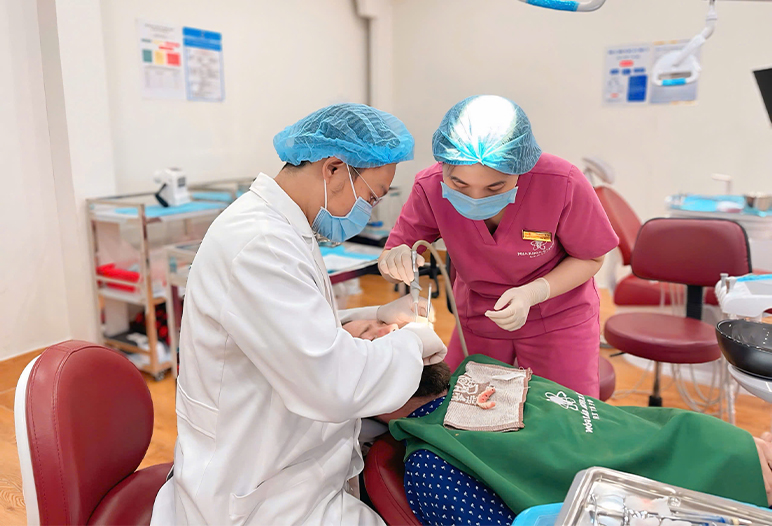
Duration of overall treatment
The entire process of obtaining implant retained dentures can span several months, largely dependent on individual healing rates and the complexity of the case. While some patients may achieve a complete solution relatively quickly, others may experience a more extended timeline due to additional procedures like bone grafting or sinus lifts.
Despite the lengthy duration, patients often find the wait worthwhile. The end result—a stable, secure, and aesthetically pleasing restoration—provides lasting benefits that far outweigh the initial inconvenience. Patience and ongoing communication with the dental team are paramount throughout this transformative process.
Potential risks and complications
While implant retained dentures present numerous advantages, it is essential to acknowledge the potential risks and complications associated with the procedures involved. Awareness of these challenges equips patients to make informed decisions and prepares them for effective management if issues arise.

Common risks associated with implants
The most common risks related to dental implants include infection, nerve damage, and implant failure. Although the chances of complications are generally low, it remains crucial for patients to thoroughly discuss their concerns with healthcare professionals before undergoing surgery.
Infection can occur at the surgical site, necessitating prompt intervention to mitigate any adverse effects. Patients who adhere to proper hygiene protocols and follow postoperative care guidelines significantly decrease their risk of infection-related complications.
Nerve damage, while rare, can pose challenges during implant placement. Skilled and experienced surgeons can minimize this risk through precise planning and imaging techniques, ensuring safe placement of implants away from sensitive nerve structures.
Comparison to risks of traditional dentures
In comparison, traditional dentures also carry inherent risks, albeit of a different nature. Ill-fitting dentures can lead to sore spots and gum irritation, requiring frequent adjustments and replacements. Additionally, traditional dentures can contribute to accelerated bone loss, further complicating oral health over time.
By recognizing the distinct risks associated with both options, patients can make well-informed choices and weigh the benefits against potential drawbacks. In most cases, the long-term advantages of implant retained dentures—such as enhanced stability and preservation of bone density—outweigh the risks involved.
Managing complications effectively
Should complications arise, timely intervention is critical in safeguarding the success of dental implants. Patients experiencing persistent pain or discomfort are encouraged to communicate openly with their dental provider.
Regular check-ups serve a dual purpose: they provide opportunities for monitoring implant health while allowing dentists to identify and address any emerging issues proactively. Early detection and intervention can often resolve complications before they escalate, ensuring a smoother journey toward successful outcomes.
Implant Retained Dentures Cost: A Comprehensive Guide
When considering tooth replacement options, many patients are exploring the benefits of implant retained dentures. However, one of the most important factors in the decision-making process is understanding the implant retained dentures cost. This cost can vary depending on several factors, including the type of denture, the number of implants needed, and the specific dental practice. In this article, we will explore the various aspects that contribute to the price of implant supported dentures and help you make an informed decision.
What Affects the Cost of Implant Retained Dentures?
The implant retained dentures price can vary significantly depending on the complexity of your dental needs. For example, patients who require only a few implants may find the cost lower compared to those needing full mouth reconstruction with implant supported overdentures. Factors that influence the overall cost include:
- Number of Implants Needed: The more implants required, the higher the cost. Some patients may need four or more implants per arch to support the dentures, which can impact the final screw in dentures cost.
- Type of Denture: There are different types of implant-supported dentures, including fixed and removable options. Implant supported overdenture cost will generally be lower than that of a fixed bridge due to fewer implants needed for support.
- Dental Practice Location: The price of implant supported dentures can also depend on the geographic location of the dental practice. Urban areas tend to have higher dental costs due to overhead expenses.
- Additional Procedures: If you need preparatory treatments such as bone grafting or sinus lifts, these additional procedures can increase the implant retained dentures cost.
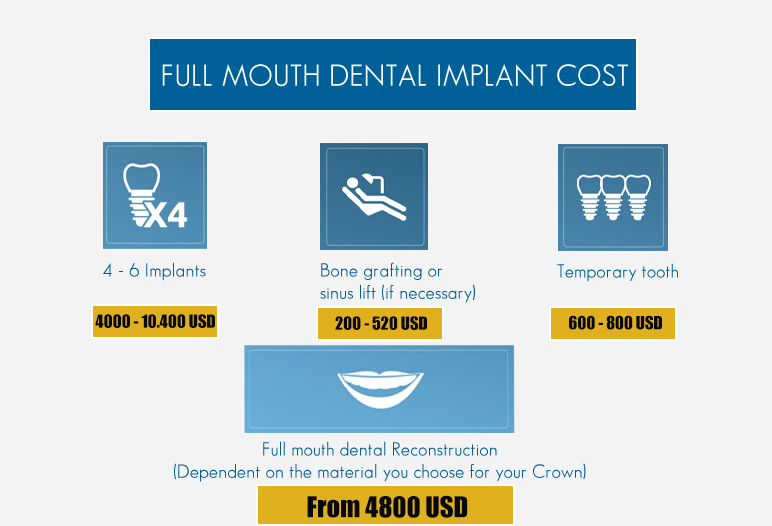
Breakdown of Screw in Dentures Cost
One popular option for patients seeking a more stable, long-term solution is screw in dentures. These are typically more expensive than traditional dentures but provide greater stability and comfort. The screw in dentures cost generally includes the cost of the implants, the surgical procedure, and the placement of the dentures, making them a significant, but worthwhile investment for many patients.
Long-Term Value of Implant Retained Dentures
Although the implant retained dentures price may be higher initially compared to traditional dentures, they offer long-term benefits that can save you money over time. Implant-supported dentures are more durable and tend to require fewer repairs or replacements than conventional dentures. Additionally, implants help preserve jawbone density, reducing the need for costly bone grafts in the future.
How to Save on Implant Retained Dentures Cost
To help manage the cost, some dental practices offer payment plans or financing options. It is also important to check if your dental insurance covers any part of the price of implant supported dentures. While insurance coverage varies, many plans provide partial coverage for dental implants, which can help offset some of the implant retained dentures cost.
Understanding the implant retained dentures cost and the factors that influence it is crucial when considering tooth replacement options. By weighing the upfront cost against the long-term benefits, you can determine whether this investment in implant supported dentures or screw in dentures is right for you. Always consult with a trusted dental professional to get a personalized estimate and explore all available options to ensure you make an informed decision.
Conclusion
In summary, implant retained dentures emerge as a transformative solution for individuals grappling with tooth loss. By merging stability, comfort, and aesthetics, these advanced restorations address the shortcomings of traditional dentures, significantly enhancing quality of life.
Through careful consideration of the types available, their benefits, costs, procedural aspects, and potential risks, patients can make informed choices about their dental health. Ultimately, the decision to invest in implant retained dentures represents an investment not only in oral function but also in self-confidence and overall well-being.

 Google Reviews
Google Reviews Call
Call
SAIGON IMPLANT CENTER
Best dentist in Vietnam
Saigon Implant Center - Dental Clinic utilizes the latest technology for specialized treatment in the field of Single implant, full jaw implants, All on 4 implants, All on 6 implants, Zygoma implant....
SAIGON IMPLANT CENTER
Best dentist in Vietnam
Saigon Implant Center - Dental Clinic utilizes the latest technology for specialized treatment in the field of Single implant, full jaw implants, All on 4 implants, All on 6 implants, Zygoma implant....